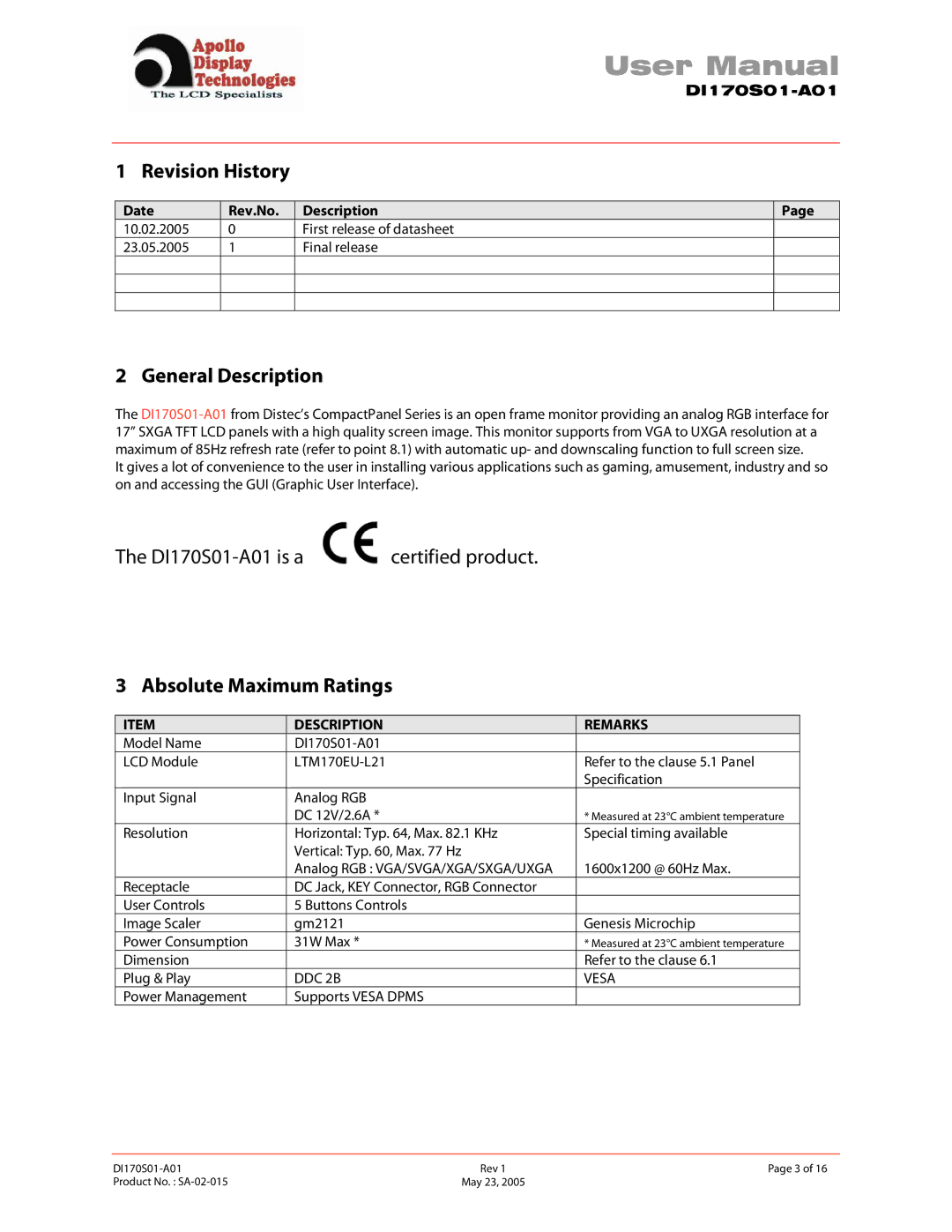SA-02-015 specifications
Apollo SA-02-015 is a cutting-edge spacecraft designed to enhance space exploration and research capabilities. This model stands out for its impressive array of features and technologies, combining advanced engineering with innovative design to achieve remarkable performance in various space missions.At the heart of the Apollo SA-02-015 is its robust propulsion system, which utilizes a state-of-the-art liquid propulsion technology. This system provides exceptional thrust and maneuverability, enabling the spacecraft to execute precise orbital maneuvers and deep-space missions with ease. The propulsion system is complemented by an advanced fuel management system that increases efficiency and reduces waste, ensuring optimal performance during prolonged missions.
The structure of the Apollo SA-02-015 is built from lightweight composite materials that offer high strength-to-weight ratios. This design not only enhances the spacecraft's durability in the harsh conditions of space but also improves its fuel efficiency, allowing for greater payload capacity. Additionally, the spacecraft's thermal protection system is engineered to withstand extreme temperatures, ensuring that critical components remain functional during re-entry and prolonged exposure to space.
One of the hallmark characteristics of the Apollo SA-02-015 is its modular design. This feature allows for easy upgrades and maintenance, making it adaptable to various mission profiles. Each module can be customized to accommodate scientific instruments, habitats, or cargo, providing versatility for research missions, satellite deployment, and crewed flights.
In terms of communication technology, the Apollo SA-02-015 is equipped with advanced satellite communication systems that enable high-bandwidth data transmission between the spacecraft and mission control. This capability is crucial for real-time monitoring, data collection, and communication during missions, enhancing operational efficiency and mission success rates.
Furthermore, the spacecraft incorporates cutting-edge navigation and control systems, utilizing artificial intelligence and machine learning algorithms to optimize trajectory planning and execution. These technologies allow for autonomous operations, reducing the workload on mission control and increasing safety during complex maneuvers.
Overall, the Apollo SA-02-015 represents a significant advancement in spacecraft design and technology, paving the way for future exploration initiatives and scientific discoveries. Its combination of powerful propulsion, durable materials, modularity, and advanced communication systems makes it a key player in the next generation of space exploration endeavors.

